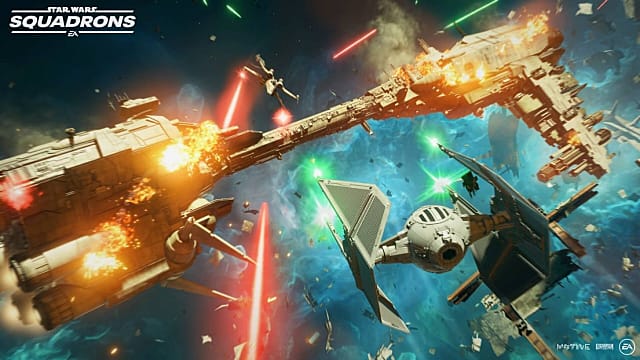Most ships have seven component slots, four active and three passive:
Primary Weapon Auxiliary (two slots for these) Countermeasures Hull Shields Engines
Ships without shields only have six component slots. Active components alter how your ship performs, while passive ones help keep you alive longer.
Each component type has multiple varieties, and all unlock through normal gameplay. For example, the primary weapons come in short burst and long-range types, among others. The auxiliary slots let you add things like repair droids and bombs, while countermeasures help you make a quick escape or at least let you go out with a big bang.
The three passive components are a bit more self-explanatory, though there are still plenty of varieties to customize your ship with. Some hulls resist cannon fire, while certain shield types work better, but recharge more slowly.
In short, there’s a lot to take into consideration when creating your ideal ship. Or not, if you so choose. You can use the base ships without doing a single thing to them if you want, though lead gameplay designer James Clement encourages players to experiment with different components:
You’re free to customize your pilots and cockpit interiors if you so wish, with decorations pulled from throughout the Star Wars universe, like Stormtrooper dongles and crystals from Crait’s mines. All these and your ship builds can be saved into one of five loadout slots to make for faster switching when you need or want to change out your current build.
Star Wars Squadrons is set for release on October 2 for PlayStation 4, Xbox One, and PC. Stay tuned to GameSkinny for more Squadrons news, and be sure to check out the Star Wars Squadrons gameplay trailer if you haven’t already.
[Source: EA]
